
1933

By the time my sister was born, South Africa - like Canada, India and Australia - was a dominion of the British Empire. Our home language was English, we could speak Afrikaans, and whereas my sister and my father could communicate in Latin (which I envied them) I seem to think that my first language was actually Sesuto (SeSotho); particularly as I loved my Basotho nanny more than anyone else on earth, and, because my father was involved in public life, I saw more of Lizzie than I did of my parents. I also recall being the only white child in a black, farm school at one stage.
Until my mother, my sister, and I moved away from our idyllic little Free State town after my father’s death, my life had been as perfect as any child would wish; but, like many openhearted and generous men, he had — while being incapable of turning away anyone who needed help (including a financially strapped church in another town)— failed to make provision for his own his family. So it happened that, soon after arriving in the ‘Big’and more judgmental city of Bloemfontein, where my sister had found work, my blissful existence was seriously marred. It was there that one of my new schoolfellows turned her back on me with a scornful, “Get away from me, you dirty Dutchman!”
How I hated having a Dutch name, which might (horror of horrors!) have labelled me a "Boer" - especially as my father consorted with people like the Duke of Connaught, I had an aunt who had been presented at court, and, as a member of a Brownie pack, I had once proudly seen my father welcome Lord and Lady Clarendon on the steps of our Town Hall. Flags hung at half-mast and all places of business were closed on the day of my father's death.
How, I would wonder, could he possibly have run away, at the age of sixteen, from his prestigious English private school in Bloemfontein and contrived to find himself a horse in order to fight against the British, when we had a large portrait of him in the dining room, standing, shoulders squared, in his uniform as a major in the South African Forces during the Great War - on the side of the British? Truly one would have to understand the history of South Africa very well indeed, in order to be able to appreciate with what forgiving hearts its people had been blessed.
The Union of South Africa, another war and a rebellion.
On 31 May 1910, the two former Boer republics of the Transvaal and the Orange Free State, and the British colonies of Natal and the Cape, joined together to become the Union of South Africa under the British flag, but only four years later the brave new country faced a new crisis when Britain called upon its dominions to help in a fight against a new enemy in Europe - Germany. The Afrikaners in the newly-formed Union of South Africa were put in the spot, as they were reluctant to fight on the side of the British - their erstwhile foes - and the country was divided again when a rebellion was instigated. Finally, after that had been suppressed, South African entered the war on the British side, and the government having agreed to attack the German colony of South West Africa, that is where both my father and the man who became my father-law, saw service. Surprisingly, it was in a Canadian Military Journal published in 1985, that I recently found the most glowing account of South Africa’s illustrius record and contribution to the victories that brought that war to an end.
When peace was declared, Jan Christiaan Smuts of South Africa was among the architects of the ‘League Of Nations’, an association of countries established in 1919 by the Treaty of Versailles to promote international cooperation and achieve international peace and security! When it was replaced by the United Nations in 1945, it was Smuts who drafted the Covenant of the United Nations, which is considered to have been his major achievement; but it should also not be forgotten that as a Field Marshal of the Allied Forces during WW2, he enjoyed the respect and friendship of both General Eisenhower and the King of England.
Until the name was changed recently, the main airport in South Africa bore his name.
My father
For most of my life, and long after his own was over — for as long as there were people alive to attest to this amazing, gifted person, his integrity, character and life — to hear people unfailingly wax eloquent regarding his virtues, the moment his name was mentioned, has been a privilege enjoyed by few children. I was only six when he died, and now I, too, am old, but I retain the most vivid memories of him. Although, in my novel, ‘Tarnished Idols’ the romantic story itself is not true, I used him and his relationship with my sister and me, in my book. He really did speak Latin, and he really did teach himself to write shorthand, which is why, in his obituary, the Ficksburg News quoted one speaker as reflecting:
“As a bilingualist he was outstanding, and could not only write as well as speak most fluently in either medium, but was outstandingly able in his quick interpretation of speeches — a qualification that few could claim — with equal facility. (Obviously the shorthand was an asset!) “As a companion he was entertaining, and whatever the conditions, always cheerful and optimistic. As a host he was hospitality itself.
“As the deceased had seen active service and retired with the rank of Major on the reserve list, a firing party of Ficksburg School Cadets under command of Captain Pienaar was formed outside the church and presented arms to the coffin, which was still draped with the Union Flag. And the funeral cortège was preceded by the party at slow march with reversed arms. The interment arrangements were in the hands of the Mayor, Mr. A.A. Keyter jnr. and the bearers were the Ficksburg Town Councillors, and others: Messrs. N.J. Leonard, S.D.Barnett, I.Danneman, P.R van Niekerk, G. Leipoldt, Caved. Heever, J.J. le Roux, assistant Town Clerk, J.H. van Heerden, attorney of Theunissen, who had been the late Mr. van Zyl’s employer in earlier days. The chief mourners were the widow and her elder daughter, Miss Claudia van Zyl, accompanied by several of their closest friends.
“On arriving at the cemetery the firing party, with bowed heads, formed an avenue for the procession to pass through, and, after the final obsequies, ranged on either side of the grave and fired three volleys over the mortal remains, in the intervals of which the bugles sounded the retreat. (Sunset.) After the firing of the last volley they again presented arms and the bugles sounded the Last Post. ... At the end, Mr. Van Heerden thanked the public for their attendance and the many expressions of sympathy to the family.
“All sections of the community, civic, legal, commercial, and agricultural, of town and country were present, and all places of business in town, including the banks, were closed during the funeral, and as a mark of respect and recognition of the deceased’s military service, Colonel P. Krog and Lieutenant JEFF. Becker were in uniform. The sympathy of the Girl Guides and Brownies was demonstrated to Miss Claudia van Zyl, a Guide, and little Miss Marie van Zyl, a Brownie, by the uniformed presence of their officers, Miss Tenant, Captain, Mrs. Snelling, second Captain, and Miss Saayman, acting Brown Owl.
. . . .
Whatever could have motivated my father and his friend, Deneys Reitz to run away, at the age of sixteen, from their prestigious English private school in Bloemfontein and contrive to find themselves horses in order to fight against the British? - NOW I KNOW!

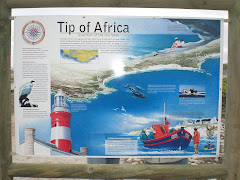
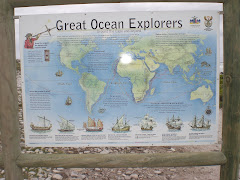
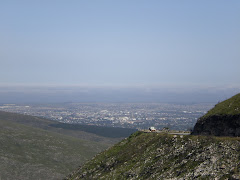

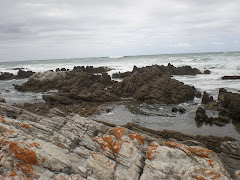
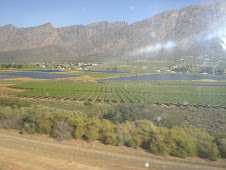
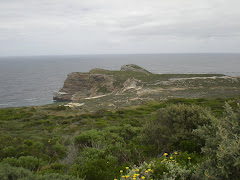
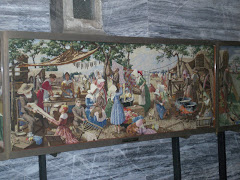








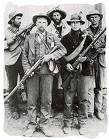



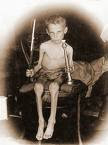

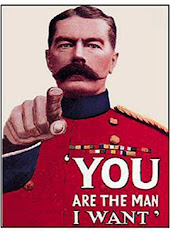.jpg)

.jpg)
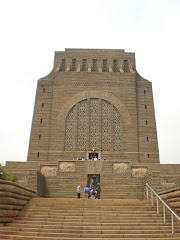


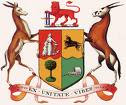



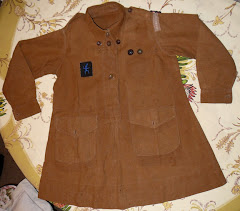



16 comments:
Thank you for this blog. It's high time that people in the rest of the world realized that the FIRST HOLOCAUST OF THE 20th CENTURY occurred in SOUTH AFRICA
Hi Marie
Francois Gerhardus Joubert was my great great grandpa.
I am currently building a family tree, but have a few missing links in it.
Would you please be so kind as to contact me.
Lovies
Gerty Joubert
Gertie that is so exciting! I have tried to to respond but can't find a contact address for you.
Please leave me a message in my guest book at www.dromedarisbooks.com
What an interesting account! I knew nothing about any of this, just vaguely something about apartheid. I have Dutch ancestors--Schoonover--and who knows if instead of going to New York in the 17th century they had gone to South Africa...
Thanks again!
Dear Marie,
thank you for writing what so many South Africans have thought. It was a Holocaust. I am researching my family and their participation in both Boer Wars and the eventual death of a great grandmother in a concentration camp @ Makeking. I have noted some of your references and will be following these up. thank you once again.
Roz McCabe-Daly
I am convinced that all wars are the same in that they are senseless to the good people of the land who become tools for the evil and greed that drives most politicians. I recall years ago being slapped on the hand for being harsh in this outlook, today this can no longer be denied as we see this all around us, and we are all capable of buying these cheap ideas that rob our kids of their innocence and souls. We must truly think before we support the idea of war.
Nice dispatch and this enter helped me alot in my college assignement. Thank you as your information.
Hello, Mrs. Warder!
Wonderful blog!
I was so excited to see that photograph w/ President Steyn's daughter-in-law. Mr. Steyn is my great-great-great-grandpa on my mom's side (Skea). I'm attempting to write about his eldest daughter, Hannah, my great-great-grandmother. I have a little journal of hers (it is far too short so I wish to write an entire pretend journal) about the Boer war.
Am I related to you? That would be amazing!
I'm 17 and I've lived in America for 7 years, but I was born in Cape Town.
I'm very excited that you're a writer. I am aspiring to be one. I'm taking a course and hoping to publish my first short story.
I hope you see this!
God Bless!
Taralyn~
Taralyn, please forgive me for not responding before this. I have been trying to comlete a new book, while battling a truly horrid neuro-muscular affliction.
I don't think that we are related, but we seem to have a lot in common.
That's alright =)
I hope you are feeling a bit better.
It does seem that way.
Best wishes!
Taralyn~
May I ask you one question? I hope you're not too busy.
How did you go about embarking on your Boer War enterprise?
I'm wondering because I too would like to do some research and writing about it.
I understand if you don't manage to reply.
Taralyn~
FOR TARALYN:
I did not have to do too much research because, where I lived, and being surrounded by 'history' and people who could tell me things when I was little, there was much to be learned on my doorstep, as it were. - And yet, as I have confessed, I did not really KNOW until I became interested. After my father's death we moved to a city where I would have been looked down upon if I had betrayed my ancestry.
In my book, Storm Water, I have confessed how I came to realize how wrong I had been…
IF YOU LEAVE YOUR EMAIL ADDRESS ON MY WEBSITE, www.dromedarisbooks.com I can email that info to you. Thank you for writing.
Hi,
Up until recently I always thought it was only afrikaners held in the camps. Not so..
British concentration camps in South Africa is a website run by UCT listing all the farms and inhabitants that were held in the various camps around the country during the boer war.
There are quite a few english names listed.
My great grandfathers brother was one such person, he was born in Beaufort West to english parents.
Settled on a portion of the family farm. He was interred at the Middelburg Refugee camp with his wife and children. General French must have thought of him as a threat.
Not only that.. My great grandfather married a Boere meisie, whose parents were voortrekkers that left the Cape Colony to escape the english. They firstly settled in Natalia, only to have that annexed by the Brits. Then moving on to the Transvaal to have one of their daughters marry a englishman.
Strange days indeed!!
Warfare is a fascinating subject. Despite the dubious morality of using violence to achieve personal or political aims. It remains that conflict has been used to do just that throughout recorded history.
Your article is very well done, a good read.
Hello Marie, loved your blog. My father Johan Christoffel Antonie Esterhuizen was born at Aberdeen in SA on 4/8/1897. His siblings and parents eventually moved to Australia. He at age 15 ran away & after reading your account I too can understand exactly why.
I believe I have found his fathers war record, same year of birth but as farmer I suspect he may have surrendered and fought for the British. My research says they never talked about those times but my informants are no longer alive. I have done a re read on Johanna Brand's War diary I bought in Capetown, (she was a nurse in a camp called Irene for a time, mentions Pretoria often. I suspect my grandfather's wife and living children were probably held in camps somewhere. There is one child DOB 25/1/1902 who died 1903, I am searching for records. Thanks you for your insight, my search continues.
Marie, my preferred e-mail is unarobinson@bigpond.com.
Post a Comment